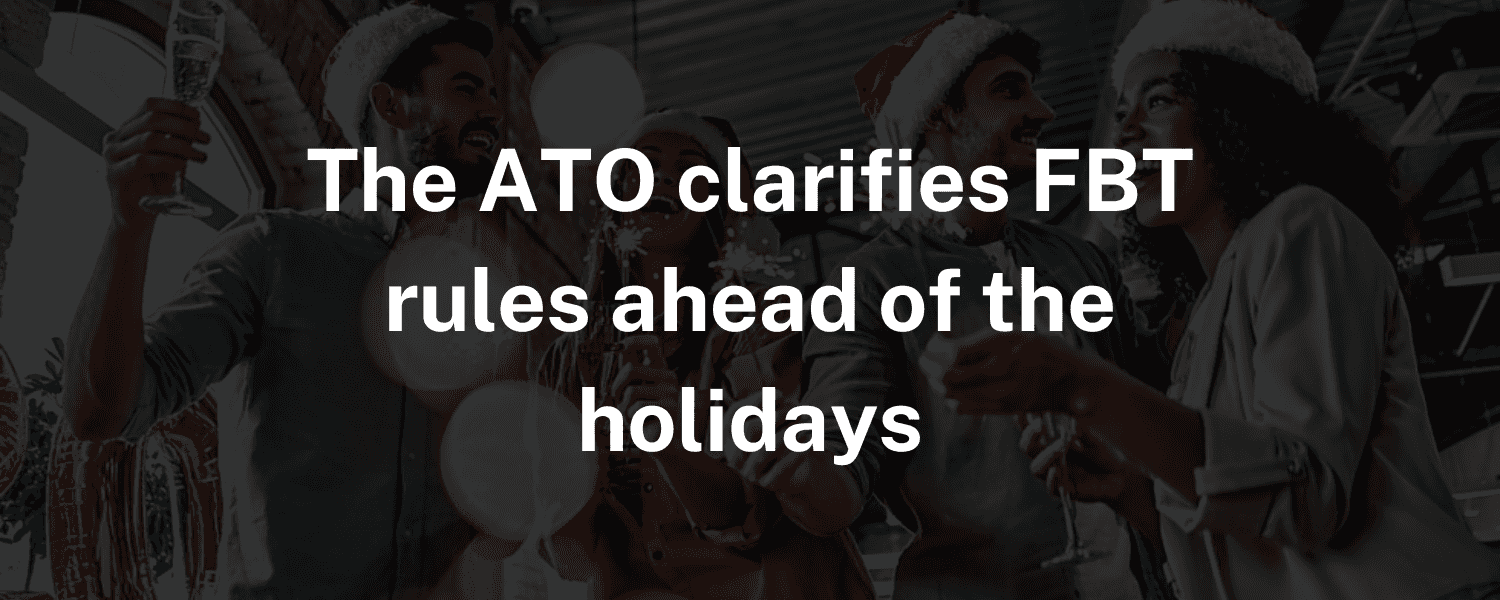Avoiding an FBT tax audit from the ATO
Navigating the FBT Landscape: ATO Targets Employers and Holiday Revelers
Addressing FBT Myths in the Tightening Labor Market
The Australian Taxation Office (ATO) has embarked on a myth-busting mission to dispel misconceptions surrounding Fringe Benefits Tax (FBT). This initiative places specific emphasis on employers who are testing the boundaries of the personal use exemption, particularly in the context of utility vehicles (utes). Emma Rosenzweig, Deputy Commissioner for superannuation and employer obligations, underlines the increased scrutiny from the ATO as employers, amid a tightening labor market, venture into offering fringe benefits to attract or retain staff.
The Grinch of Tax Audits: Outlandish Claims and Ute Misconceptions
Rosenzweig highlights reports received by the ATO concerning "outrageous claims" related to FBT in advertising, specifically debunking a myth involving dual-cab utes. Contrary to the belief that providing a ute for work and allowing employees to take it home over the weekend exempts it from FBT, Rosenzweig clarifies that there is no magic exemption for utes. The FBT exemption for private use of a work vehicle applies only when that private use is genuinely limited. Usage for personal activities, such as camping or biking on weekends, disqualifies the vehicle from the exemption, triggering FBT.
Steering Clear of the FBT Minefield during Festivities
As the holiday season approaches, H&R Block cautions businesses about unintentionally stumbling through a festive FBT minefield. The ATO echoes this sentiment with a seasonal reminder, alerting party planners to the intricacies of FBT regulations during festive events. Mark Chapman, Director of Tax Communications at H&R Block, warns that exceeding the $300 per head limit for minor benefits can turn a seemingly harmless overspend into a substantial tax bill.
Cracking the FBT Code for Holiday Celebrations
Chapman emphasizes the importance of understanding the FBT minor benefit exemption of $300, particularly when hosting off-site events. The ATO reinforces the message, advising businesses to be familiar with the rules before booking venues or restaurants for holiday celebrations. The $300 threshold applies to each current staff member when events move off-site, and costs can escalate further when partners or "associates" are included, regardless of the venue.
Financial Frolics or Tax Hangover?
Chapman contends that the $300 limit, set in 2007, is outdated and should be closer to $450 when adjusted for inflation. Negotiating the FBT landscape becomes even trickier when considering clients, tax deductions, and GST credits. To avoid the FBT Grinch, Chapman suggests keeping expenses under $300 per head or hosting events on working days at the office. The ATO's holiday guidance emphasizes the application of FBT to "associates of employees" and gifts, urging businesses to keep detailed records to steer clear of post-celebration tax hangovers.
Getting your fees paid
If there is a legal requirement to respond to a statutory body's investigation into a tax return or compliance obligation, clients with an AuditCover tax audit insurance policy may be entitled to claim professional fees for your time in responding.

